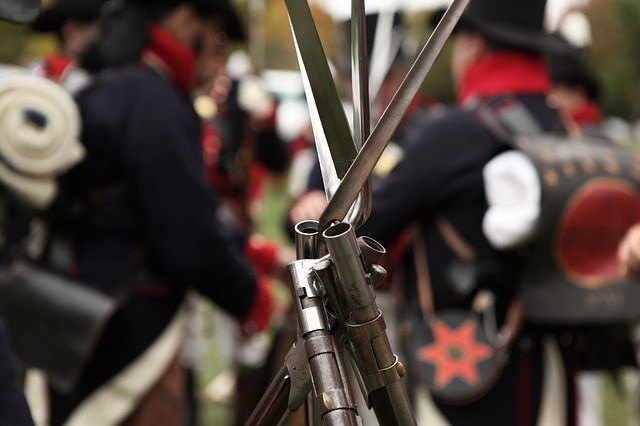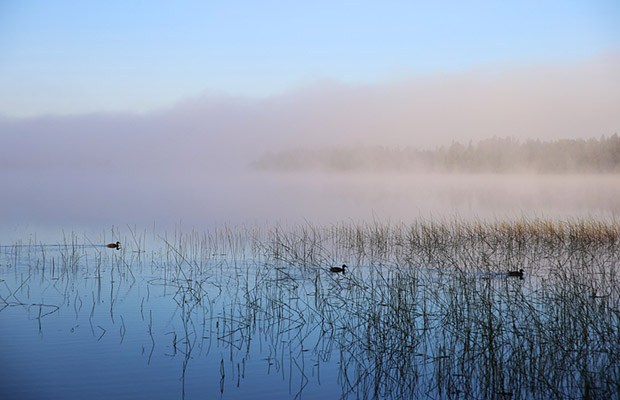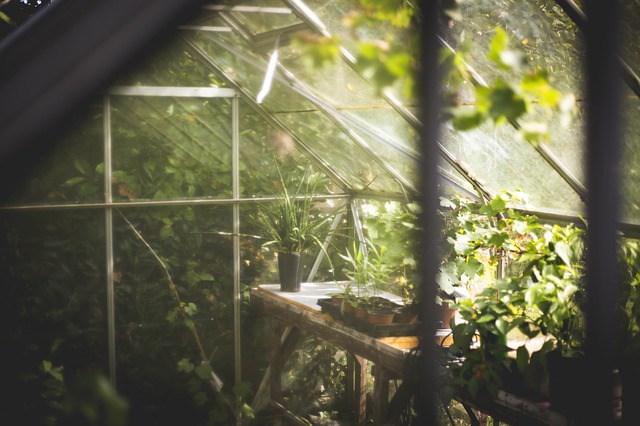Going “Green” Instead of Being A “Prepper”
The “green” movement can cover a lot of our preparedness interests and purchasing habits, providing a degree of OpSec and cover for us. Conservationist and environmentalist are commonly bad words in some preparedness folds, but as a professional greenie myself (certified conservation landscape designer, landscape architect, permaculture designer, Critical Areas Act consultant, and ecosystem restoration management) I can tell you we’re not all that bad. You may find that it is wiser to couch your actions by going green instead of broadcasting you are a prepper.
And sometimes, preppers and greenies are already kind of walking in lock-step. We just don’t always realize it.
Two sides of the same coin
Think about Ducks Unlimited. There the nice people are, wandering around slapping mosquitoes, risking bashed thumbs, to help the pretty little wood ducks out by building them houses and nailing them to trees, replanting marshes.
All kinds of fairly liberal news organizations and viewers go “awwww, yay, look!”
Then half the Ducks Unlimited crew is out there come frost and low cloud cover, and this time they’re hauling long-barrel shotguns, salivating over the idea of roast duck and duck-fat potatoes.
They protect the environment. They work hard to save waterways, marshes, and the woods-water edges from development. They fight up and down to keep loggers away and make sure chemicals don’t get dumped. They lobby and garner support to prevent a performance stage that would increase human traffic and noise during nesting, breeding and duckling seasons. They get a motor boat restriction.
These are typically things we attribute to the “progressive”, “liberal”, “tree-hugger”, “left” of society. But the hunters, so usually on the “right” end of the social spectrum, are right there with them.
They reap the rewards of the habitat they’ve saved and created, not just for the wood ducks, but for all kinds of waterfowl, upland birds and small game. So do all the other critters near the water, and a lot of humans. If a prepper lives near those waterway edges, they benefit, too.
Both sides are in there, fighting essentially the same fight with the same positive results, although with a different motivation.
We can take advantage of the same kind of socially conscious “left” justifications, movements, interests and acceptance to hide or advance our preparedness.
How do tree-huggers and preppers line up?
In our bids to withstand a disaster of various magnitude, we buy into old and new technologies that limit the amount of fossil fuels we burn, turning instead to renewable resources.
We learn new and incredible ways to grow year-round, in all climates, using renewable systems that limit reliance on factory-produced chemicals and oil-burning equipment. In doing so, we contribute to saving the heirloom crops of our parents, grandparents and forbears.
We learn ways to have livestock work for us, feeding themselves as they produce a byproduct we can use. We let them be our tools instead of burning more fossil fuels, have them clearing brush, mowing and tilling or hunting down garden and crop pests, or protecting the small livestock from any predators that will fit in a pig’s mouth.
We refine and develop and apply more and more techniques for capturing rainwater, storing it, and directing it where we can use it, instead of letting be wasted and channeling it as fast as possible – with faster water carrying more sediment and chemicals – away from our homes and into our waterways.
Urban, ‘burbs, or rural living, condo to barren bug-out location, the things we invest in to go off-grid commonly result in consuming less chemicals, destroying fewer woods and forests, and polluting less air and water.
Likewise, when we stash or salvage something for a project, we can justify it from the less-waste, reduce-reuse-recycle perspectives of an environmentalist. (Soda bottle or discarded window collection, anyone?)
Our neighbors see gun cases and range bags because we practice to ensure clean, humane hunting (doesn’t matter what’s actually in them).
Gardening for the good of all
We install that rain catchment system and the mulch bed or edimentals (edible ornamentals – an actual bearing peach tree, edible flowers and unusual greens, beautiful amaranth, and colorful chard) or our woodland rain garden (of wild edibles). We limit the rainwater runoff from our roof, pollution from lawns, and limit our draw on the aquifers amid this growing national drought, and we provide pollinator forage in there with our landscaping or a little urban or suburban oasis for wildlife.
Yeah, we make food. Maybe you say so. Maybe you pretend your lavender, garlic chives, candle peppers, scarlet beans, and purple cutting lettuce are just more pretty plants. Maybe you point out that your new white willow will soak up some of that soggy spot in the lawn, but don’t mention that it’s a medicinal and rabbit feed out there with the lilies and container-grown cattails and the blueberries and aronia that are going to be stunning in autumn.
We learn the old ways of food preservation to take advantage of seasonal produce. We do so to limit our reliance on commercial products, but in doing so we also opt out of a culture of disposable food containers, and the mines and factories that produce those, the chemicals used in processing and growing the foods and containers, and the fossil fuel used in shipping a can of tomatoes fourteen times before we buy it and drive it home.
See, when we buy into self-sufficiency, we really do create a better world, regardless of our primary motivation.
That means we can go forward and “hide in plain sight” without telling any lies when we use an environmental justification for our interests and projects. We just need to apply those happy “green” catchphrases.
We might even convert one of our ultra-liberal neighbors who would have run screaming from the idea of “prepping”, because they’re introduced in baby steps that don’t challenge their norm and sense of security. That makes for a more resilient community, because it’s not all on our backs. We’re not alone.
Expanding our skills and knowledge resource pool
Being a greenie instead of a prepper, we no longer have to be super sneaky about how and where we learn our skills. We’re a “safe” kind of freak in the public’s eyes now. Without OpSec breathing down our necks, we open up the pool of people we can learn from.
We’re not limited to other preppers and survivalists, and the horror of arranging a meetup. We can just be hobbyists and practitioners because we’re interested in one thing – among other things.
We can now openly learn individual aspects from topic-specific practitioners. Hunting and reloading from hunters and trappers. Fishing from anglers. Livestock from those who have it. Canning from canners. Sewing from sewers. HAM and SSB CB from radio ops. Gardening from gardeners. Foraging from foragers. Bug-Out from through packers. Shooting from shooters.
And a real bonus is, unlike preppers, a lot of enthusiasts want you to come look at their babies and see what they do.
If we net ourselves a permaculturist or modern homesteader we looked up from a blog or met at a fruit stand or the farmer’s market, whoa, jackpot. We might get a whole load of knowledge about multiple fronts all in one sweet spot, OpSec still secure.
The truth but … maybe not the whole truth
You might not give a hoot about an island of plastic in the middle of the Pacific, starving polar bears, or the loss of forest in the Amazon. But these are unassailable facts. We can compare coverage maps, see them in video footage. This makes them “safe” – like the truth of fecal-oral disease risks following a flood.
You can use those facts and others in conjunction with your own activities when asked. Most people will draw their own conclusions when they’re sprinkled in there together.
Say we’re running around salvaging things to build a cold frame for greens, cabbage beetle and bird exclusion frames, maybe a vertical pallet garden and drip irrigation, maybe window lettuce towers, and somebody finally asks about it.
There’s a major drought in California and we pump water faster than aquifers and reservoirs refill. Chickens spend their lives packed into tiny cages that are barely big enough to lift their heads all the way. We want to grow our own broccoli and strawberries, and have some laying hens. We’re not buying it in one shot at Lowes; there’s an island of trash in the Pacific already, sheesh.
Ohhhh. You’re a … whatever it is.
“I’m not an extremist or PETA or anything like that, we’re still buying stuff from stores and all, but…” *Shrug.* “Every little bit, right?”
Huh. Yeah. Every little bit. Right. Okay.
Every word is true. Every statement is one of those fact-truths, not any type of twisted science. You may not actually care about the quality of life for a laying hen in Big Ag production, but you can still share the fact. They can draw their own conclusion.
You are, again, a “safe” kind of freak, the kind that hugs trees. Not the scary anti-government kind that was just on the TV. And if you really want to make them go away, try to convert them to your newfound interest, environmentalism. Many will start avoiding you.
Mission accomplished.
OpSec takes over our brains
We tend to want to learn new skills and complete projects because we’re motivated by the disasters we foresee. We learn OpSec early in preparedness, and we understand that it hamstrings us in some ways – like forming networks and groups. We just can’t seem to cut the cord, though.
We don’t want to become a target for thieves now. We don’t want somebody to know and remember us and become targets later. So we don’t talk about preparedness-related things. Good OpSec.
But sometimes we forget that other people do these things we do, too. A lot of them do the same or similar just because it suits them. This is their hobby or passion. Gardeners, scrapbookers, home births, shooters, radio types, model builders, homeschooling, scrap metal sculptors, hunters, knitters – it takes all kinds.

Reenactors are a good example of a “group” who we can learn a fair bit from about off-grid living.
We also forget that we don’t always have to share our interest as being motivated by preparedness – or our newfound reason for going green. We forget that we can say “I’m interested in” or “I want to learn” because we are interested and want to learn. We forget that we can just shrug our shoulders when asked “why” and say, “I just am. It’s interesting.”
Reenactors are a good example of a “group” who we can learn a fair bit from about off-grid living. They just like to pretend to be from a time before electricity, the way some people like to paint and some people collect stamps.
Use that. Just be interested in something.
If we’re not comfortable with that, really feel like we have to have an explanation, there’s always the greenie option. We don’t even have to talk about self-sufficiency unless we hunt down a homesteader or permie. “Environmentally motivated” does the job.
The Safety Net of a Greenie
Hiding in plain sight doesn’t always work, but it can, when done right.
We’re in a major upswing where sustainability and environmentally friendly are things that are viewed as relatively common if not normal, and even laudable by a lot of society. “Environmentalist” covers a lot of our crazy projects, and can be used to explain away some of our activities.
You’re on your own coming up with a “green” explanation for that chest carrier and all the AR furniture with your spouse and in-laws, but there are regularly eco-friendly benefits to lot of our purchasing habits, if they’re done smart. Just try to stay away from the polarizing types like PETA and Whale Wars. Most of us greenies aren’t really like that. We “normal” eco-freaks tend to want to make them go away as much as we do the people who get twenty paper napkins at McDonald’s, use three, and throw the whole wad away. (Used napkins are recyclable and compostable, BTW.)
The “green” movement can cover a lot of our preparedness interests and purchasing habits, providing a degree of OpSec and cover for us. Conservationist and environmentalist are commonly bad words



